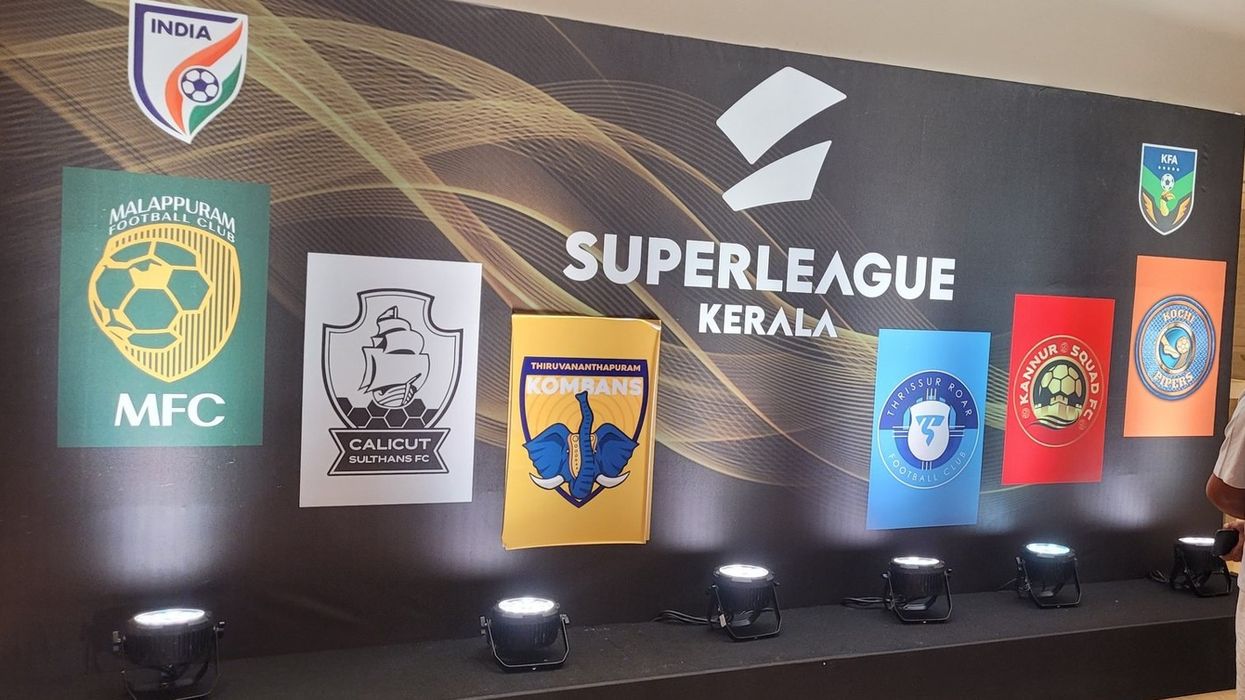The Super League Kerala (SLK) has revealed its inaugural season's franchisees, marking a significant development in the state's football scene.
Six franchises have been unveiled for the league's first season, set to kick off in early September. These include Kochi Pipers FC, Calicut FC, Thrissur Roar FC, Kannur Squad FC, Thiruvananthapuram Kombans FC, and Malappuram FC.
Franchise owners and co-owners feature notable names like Mahesh Bhupathi, Kaz Patafta, Benoit Joseph, Mohammed Rafeeq, MP Hassan Kunhi, Mibu Jose Nettikadan, Praveesh Kuzhuppilly, Shameem Backer, Travancore Princess Gowri Lakshmi Bayi, Dr Mohamed Ilyas Sahadulla, KC Chandrahasan, TJ Mathews, VA Ajmal Bismi, Dr Anvar Ameen Chelat, Baby Neelambra, and VK Mathews.
The league promises manifold opportunities across various sectors such as sports, entertainment, retail, tourism, and hospitality for the chosen regions and their surroundings.
Over 100 talented youngsters from Kerala will receive exposure through SLK, enhancing their prospects in Indian and international football.
Kerala minister of sports, V Abdurahiman, highlighted SLK's potential to redefine football in the state during the franchisees' introduction ceremony.
SLK CEO Mathew Joseph said stadiums and venues were chosen keeping in mind a fair spread of accessibility for football fans. "The selected venues will promise an unparalleled and unprecedented experience for spectators," he said.
The league will showcase promising talents from Kerala and football-loving regions across Asia, Europe, and South America, he said.
Kerala Football Association (KFA) President Navas Meeran said though Kerala has been regarded as a traditional powerhouse of Indian football, the game's fans in the state are yet to experience the fervour and excitement akin to what is experienced across Latin America or Europe.
"Currently, in an ambitious initiative aimed at promoting football and attracting more talent across Kerala, over 5,000 upcoming players are undergoing training and competitions in five groups for the Chakola Trophy tournament," he said.
This is held as part of the Kerala Football Association's (KFA) Kerala Youth Development Project, Meeran said adding that under this project, boys selected from the districts will be given free coaching throughout the year with the help of SLK franchisees.
Hibi Eden MP, MLAs TJ Vinod, and PV Sreenijan, U Sharafali, President of Kerala Sports Council, and Australia's Consul General (in Chennai) Silai Zaki were among those present during the function.
(PTI)





